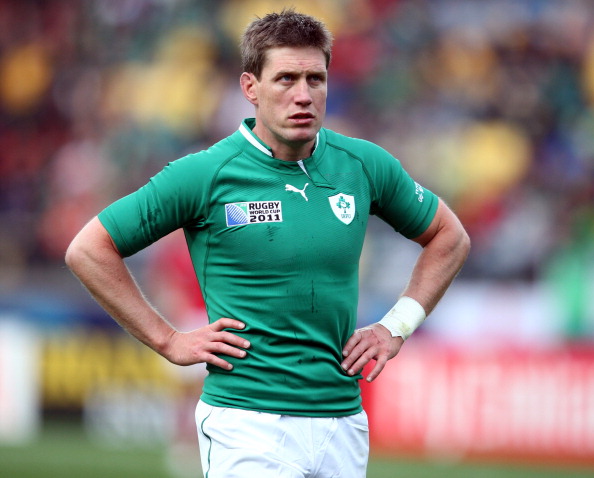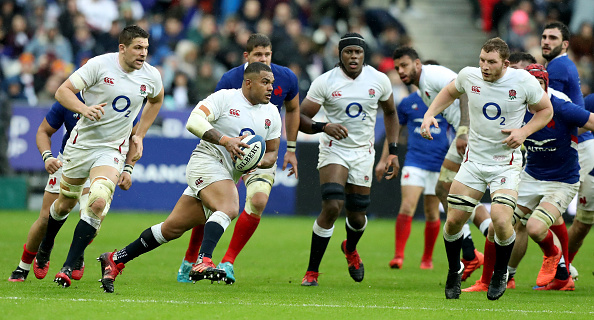Ireland and Wales have a storied history that goes back to the 19th century. These two nations have faced each other annually in the Six Nations Tournament.
History between Ireland and Wales
The Irish and Welsh men’s rugby teams first met on January 28th, 1882 in Lansdowne Road, Dublin. This was the beginning of the Home Nations Championship. The precursor to the Five Nations would eventually become the Six Nations Tournament we know and love.
Full Time score – WALES 17-22 IRELAND #TeamOfUs #ShoulderToShoulder #WALvIRE pic.twitter.com/H8f1xkR9qZ
— Irish Rugby (@IrishRugby) August 31, 2019
Sixty-five games have been played in Ireland, sixty-two in Wales, with five having taken place at neutral venues. Prior to Wales’ win in the last match between these two at the 2021 Six Nations Championship. Ireland had won four games in a row going back to August of 2019.
Win, draw and loss statistics between Ireland and Wales
As of writing, there have been 132 matches played. Wales has won seventy times and Ireland fifty-five times. Seven of the matches were drawn. Home advantage plays a part. When doesn’t it? Ireland wins around half of their games against Wales on their home patch. This drops down to a third when they face the Welsh, in Wales. They also outscore Wales on home territory.
Wales have won two-thirds of their games at home to Ireland. That drops to below half, away from home. It doesn’t take a genius to work out that they also outscore Ireland at home. On neutral ground, of the five games played, Wales has won three and Ireland two. There have been three games between Wales and Ireland at World Cups. Wales was victorious in New Zealand in 1987 and 2011. Ireland got the better of their Celtic neighbours in South Africa in 1995.
Memorable moments
For our brethren in green, you can’t go far wrong than Ireland securing their first Grand Slam in sixty-one years in 2009. Ireland defeated Wales by 17 to 15 in Cardiff. On that day, Ronan O’Gara (pictured in the main picture above) drop-kicked the winning points. Earlier in the game, Brian O’Driscoll and Tommy Bowe weighed in with one try each in quick succession, shortly after half-time. Bowe (who played a large part of his career in Wales with the Swansea Ospreys) with the pick of the Irish scores on that day.
It’s now more than ten years since Mike Phillips’ scored his controversial try against Ireland in the 2011 Six Nations. For many in red or green, this is seared into the memory banks. A young-looking Jonny Sexton (who will likely play this Saturday) kicked the ball straight into touch near the halfway line. Matthew Rees, seeing an onrushing Phillips, played a quick lineout and capitalised on the Irish defence not being set. The Wales scrum-half went on to score in the corner.
Irish players protested that Wales hadn’t used the same ball that had been kicked into touch. However, this was to no avail and the try was awarded. Jonathan Kaplan, the referee on the day went to consult his linesman on whether the same ball had been used. He said it had, and the rest, as they say, is history. Nowadays with the increased scrutiny of refereeing decisions and the availability of multiple camera angles, the try would have been disallowed. The rules state that for quick lineout throws, the same ball must be used. For further reading on what happened, click here.
Unnecessary beef between Celtic neighbours Ireland and Wales?
For a while now there has been a little bit of needle in these games. Have you heard of the saying, ‘Familiarity breeds contempt?’ Part of the needle stemming from the regularity of fixtures between Welsh and Irish domestic sides in the various guises of the Celtic League (Pro-12, Pro-14, and its current format, The United Rugby Championship)
The competition has been dominated by the Irish province Leinster, who have eight championship wins. There has been no insignificant resistance from the Ospreys. They currently have had championship success on four occasions.
Incidents like the try by Mike Phillips mentioned earlier in this article also added to the tension for a while. A bit of beef in the 133rd Test between Celtic neighbours Ireland and Wales might add to the spectacle. If it were to boil over this Saturday, it’s unlikely to continue off the pitch. There will be friendships amongst the Irish and Welsh players (this goes for the whole rugby fraternity as well). Some of these men will have played for the same side whilst touring for the British and Irish Lions, or playing for their respective regions or provinces.
Pre-game food and drink
To change tack and seeing as the game is in Dublin. Why not start your day with an Irish fry and some soda bread? Or try making the Irish potato dish, Champ? It couldn’t be easier:
Peel and cut potatoes in half and boil for approximately 20 minutes. Towards the end of the potatoes cooking time warm up some milk along with a knob of butter in a pan or microwave. Once the potatoes are cooked, drain and dry off as much of the water as you can (you can do this by putting the drained potatoes in a pan on a low heat for about a minute). Mash the potatoes until smooth with the warmed milk and butter, and don’t forget to season with salt and a pinch of pepper. Wash and thinly cut up a bunch of spring onions to stir through the mashed potatoes to complete your dish. Some extra butter can be dotted on top at the end.
Serve with some Irish stew or the old school and traditional, boiled bacon and cabbage. If you want to keep it Welsh, give their national dish of ‘cawl’ a go. It’s somewhere between a soup and a stew. Don’t forget to chug a few pints of Guinness on the day. The black-stuff, not your thing? An Irish or Welsh cider or a good old cup of tea should do the trick.
To the game
Counting down the days! ⏳#TeamOfUs | #IREvWAL pic.twitter.com/QLT2kUV7WV
— Irish Rugby (@IrishRugby) February 2, 2022
There’s a lot to love about the opening day of the Six Nations tournament and a game between Ireland and Wales in Dublin. The anthems, the inclement conditions, Michael D. Higgins greeting the players and the game itself. Ireland goes into this opening weekend fixture as favourites. Their squad depth is getting stronger and stronger, and they will enjoy home advantage. Wales has injuries to deal with to key personnel. This writer sees this match-up going to form with a win for the men in green. For a look at Pivac’s tactics going into the game read here.
Main Picture Credit:
Embed from Getty Images



